Outside of our core funding contribution from recreational fishing licence fees via DPIRD, a growing range of valued partners are helping us do more for West Aussie fishers in 2023. Without additional support for projects that make fishing better, we couldn’t do as much as we do in Australia’s largest state making fishing better for 700,000 fishers each year.
We would also like to thank our 2022/23 Business Supporters, who contribute to our organisation and the work we do on the ground in WA – a massive thank you to those businesses. You can check out our Business Supporters here. If you would like to be a 2023/34 Business Supporter, please contact info@recfishwest.org.au.
Here’s a look at our 2023 Supporting Partners and the programs they are supporting to make fishing better in WA:
Shimano – community and sustainability
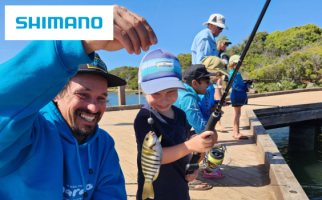
Shimano is supporting sustainable fishing practices in WA, through its backing of the Recfishwest fishing rules app with near to 90,000 users of the latest version! Shimano’s support helps ensure the app remains free for everyone and plays a vital role in the sustainability of our fish stocks.
Our SunSmart Fishing Clinics are also proudly supported by Shimano, seeing a need to support grassroots fishing and get WA kids in the outdoors wetting a line. Recfishwest SunSmart Fishing Clinics introduces children and families to fishing, getting people outdoors, promoting sustainable, safe fishing practices and connecting families to the fish they catch.
The partnership with Shimano also extends to helping us run and promote our Salmon Slam competition – the biggest land-based fishing comp in Australia! The comp taps into the mighty salmon run up the WA coast, helping fishers get onto one of the world’s best land-based sportfish on some of the world’s best beaches.
Department of Local Government Sport and Cultural Industries – industry investment

The State Government, through the Department of Local Government Sport and Cultural Industries, is a major supporter of Recfishwest and our aspirations of achieving top shelf governance and representing fishing communities through greater participation and providing enhanced opportunities and experiences for all West Aussies.
Fisheries Research Development Corporation (FRDC) – research and development
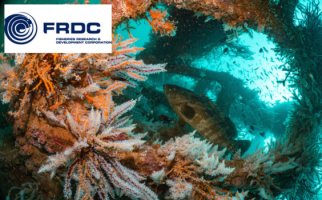
FRDC supports Recfishwest’s quest to better understand how we can enhance marine habitats through repurposing alternative and recycled materials to form productive artificial reefs in local WA waters. Man-made structures in the marine environment are scientifically proven to create fantastic fish habitats which can as a result play an important role in providing fishing communities access to abundant fish stocks and great fishing.
Traditionally, reef projects around Australia have been funded by public money through government agencies, in particular regional development, research or fisheries grants. More recently in WA, new reefs such as Exmouth’s King Reef (pictured above), have been brought to life through funding partnerships between government, not-for-profit and other private/industry sectors. Finding ways and protocols to source alternative materials to create habitat enhancement structures is critical in maximising the benefits artificial reefs can create for our oceans and communities.
FRDC funding is helping us to investigate how we can do this more effectively through our research project Artificial Reefs: Suitability of recycled materials for integration into purpose built artificial reefs for enhancing marine productivity, biodiversity and social outcomes.
Woodside – community and sustainability
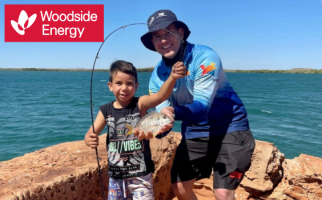
Woodside is supporting Recfishwest’s activities in North-West WA through a number of community programs, which are outlined below.
Fishing for Science (Dampier, Onslow and Exmouth)
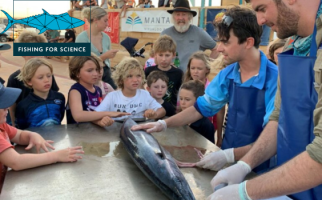
Fishing for Science is a community–focused program giving regional fishers a better understanding of the fish species that underpin their prized fishing experiences. Operating mainly through fishing tournaments, this kind of engagement program promotes greater community stewardship of the ocean and its resources. It also empowers fishers to play a more informed role in the management of our fisheries.
Community fishing clinics (Dampier and Cossack):
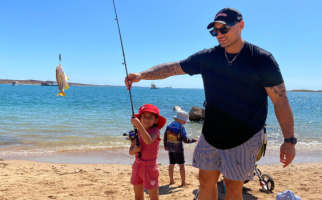
Recfishwest fishing clinics introduce children and families to fishing, getting people outdoors, promoting sustainable, safe fishing practices and connecting families to the fish they catch – nurturing great stewards of the marine environment for now and the future.
Recfishwest connecting with Aboriginal groups and communities in the North-West (Dampier, Onslow, Exmouth) through fishing:
Recfishwest is building our capacity to better understand local Aboriginal people’s culture in WA and bring theirs and the fishing communities together around common interests and values. Connection between cultures is best fostered through shared values, such as a love for fishing as a way of life, access to fishing areas and the sustainability of fishing environments.
Healthway – community SunSmart fishing clinics

Recfishwest SunSmart fishing clinics are proudly funded by Healthway promoting the SunSmart message under a long-running partnership. These clinics have been running successfully for more than 20 years. The primary purpose of Recfishwest SunSmart Fishing Clinics is to introduce children and families to fishing, getting people outdoors, promoting sustainable, safe fishing practices and connecting families to the fish they catch – helping them become better stewards of the marine environment.
BHP – community
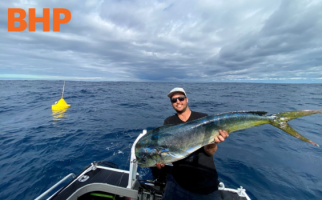
BHP has partnered with Recfishwest by providing funding for the future deployment of Fish Aggregating Devices (FADs) in local Port Hedland waters. FADs are a great type of fishing experience designed to attract larger pelagic species such as dolphinfish and tuna. These species are fast–growing, abundant and a great source of protein for the tables of WA fishing families.
DAIWA – community
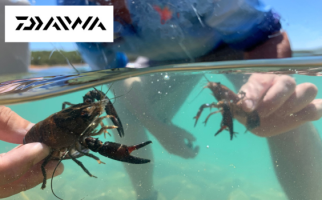
Daiwa is again supporting Recfishwest’s Statewide community fish stocking program. Well-planned, practical, science-backed fish stocking and stock enhancement activities can support great fishing for the Western Australian community and Daiwa is helping us achieve this vision.
Santos – Community and Capacity Building

Santos is supporting the expansion of Recfishwest and its capacity in the Pilbara through an on-the-ground representative based in the Karratha/Dampier community. This will help foster more engaged and better represented fishing communities in WA’s North-West. Recfishwest’s move into the Pilbara was discussed and supported as a positive development with local stakeholders.
We are always open to welcoming new partners on board to help us enhance fishing in WA while helping achieve their objectives through a strong working collaboration with Recfishwest and fishing communities. We have an array of programs that need support right across WA so if you’d like to help make fishing better, get in touch.
Find out more info here or contact Tim at info@recfishwest.org.au.
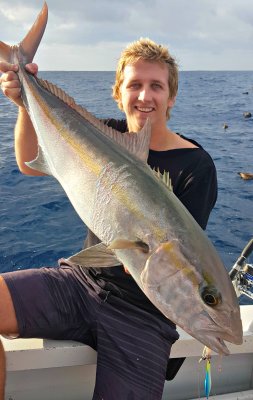
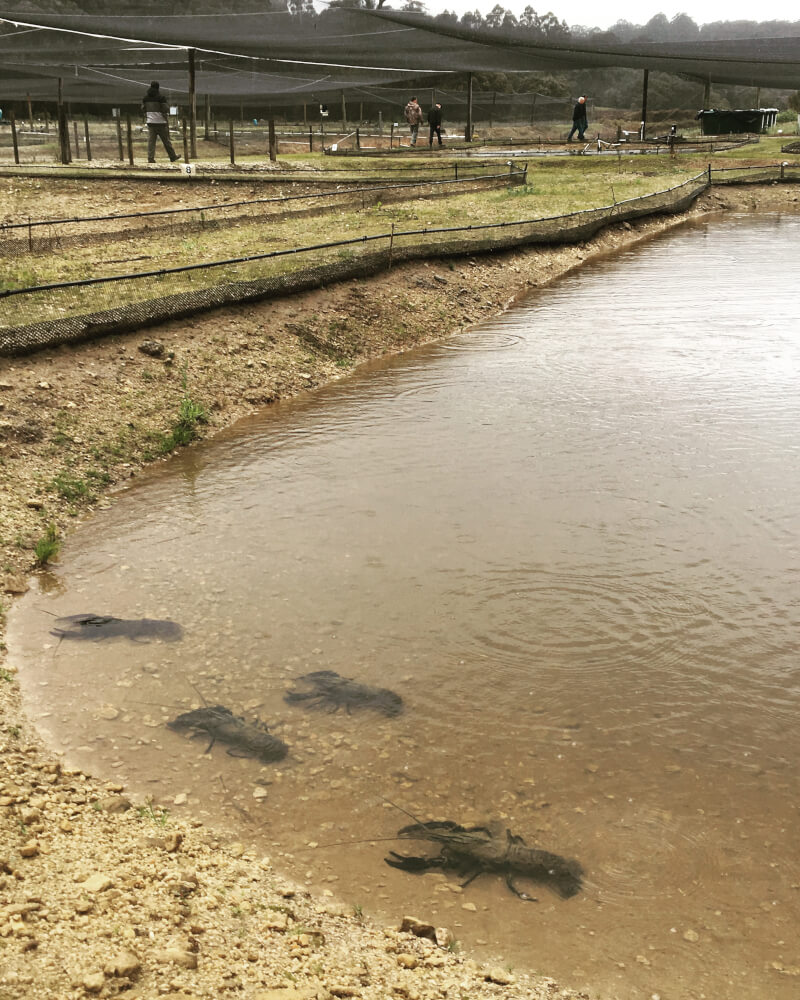 Australia.
Australia.